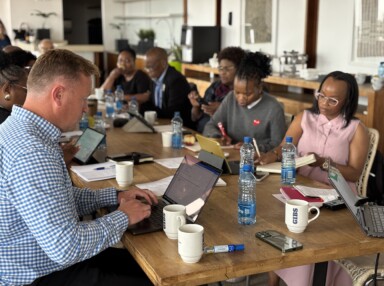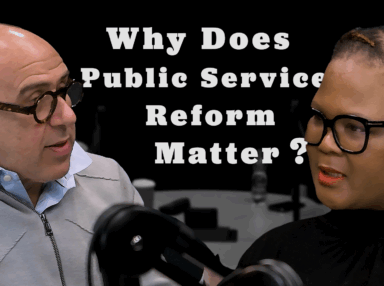NSI’s Yoliswa Makhasi Calls for Professionalised, Accountable Public Service at AU Forum
Yoliswa Makhasi, Head of Public Service Reform at the New South Institute (NSI), joined senior
African governance experts and officials at the African Union Commission’s 2025 African Public
Service Day celebrations in Addis Ababa, Ethiopia, held from 21–23 June 2025.
On Sunday, 22 June, Yoliswa participated in a high-level session on “Legal and Structural Reforms for Equitable Governance” alongside Dr Birhanu Asfaw (FDRE Civil Service Commission), Prof. Ludeki Chweya and Dr Getachew Wagaw. Drawing on NSI’s policy work, Yoliswa called for the urgent professionalisation of public service across the continent.
“Policies only matter if they improve people’s lives. Governments must deliver tangible value
through service delivery, not rhetoric,” said Yoliswa. “But poor institutional capacity, political-
administrative blurring, and patronage-driven appointments are hollowing out professionalism.”
Referencing NSI’s “5Cs of the Contemporary Crisis of Government and How to Overcome Them” and the newly released “Government in Numbers” brief, she warned of South Africa’s ageing public service and shrinking institutional capacity. An NSI analysis of 15 years of workforce data in the Departments of Basic Education, Health and Police reveals a concerning rise in retirement trends with limited recruitment of younger professionals.
Yoliswa also reflected on South Africa’s reform journey. “Cabinet’s approval of the Professionalisation Framework is an important milestone. NSI is proud to have advocated for the Public Service Amendment Bill, and to have participated in the public hearings,” she said, while noting the political pushback on proposed administrative decentralisation to department heads.
The African Public Service Day celebrations convened stakeholders from across the continent to
reflect on public-sector transformation under the AU Agenda 2063. The event concluded on 23 June
2025 with calls for greater coordination and accountability in delivering people-centred governance.






